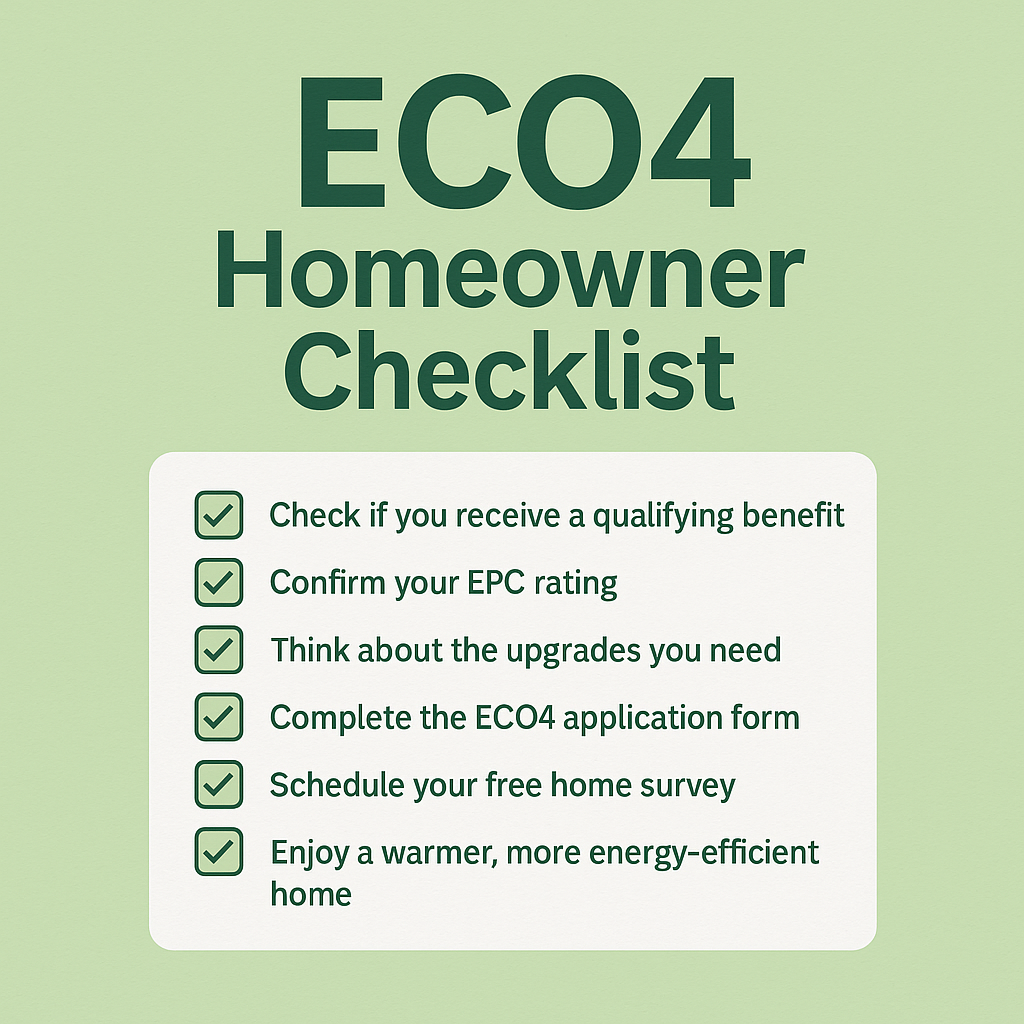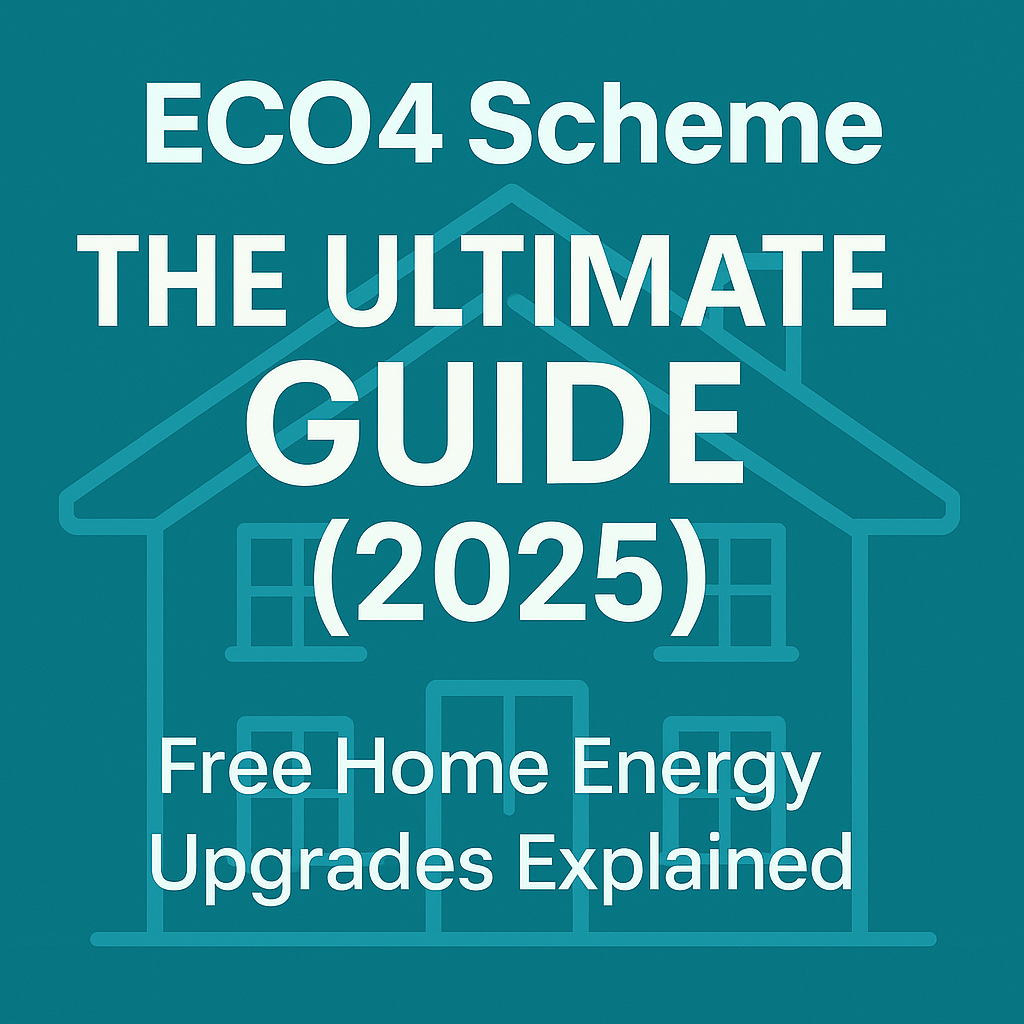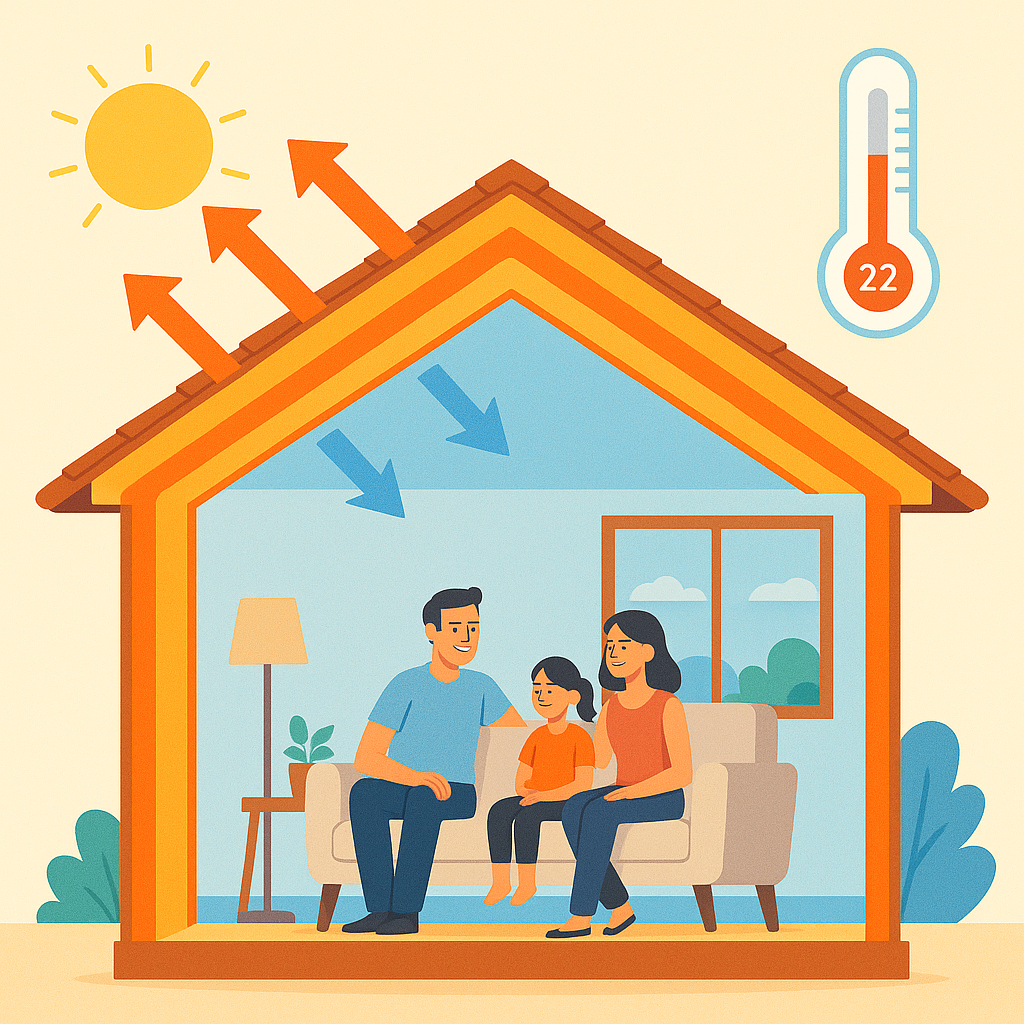The Energy Company Obligation (ECO) scheme set out by the government has helped hundreds of homes increase their energy efficiency since it was established in 2013. It was created to help reduce carbon emissions and tackle fuel poverty. Since it began in 2013, it has been amended to comply with the current UK emissions targets and fuel poverty.
As of March 2022, the government will be switching from ECO3 to ECO4. This may have implications for a range of homeowners, so it’s important you’re aware of the changes that are being put into place and what this means for you.
In this blog, we’ll outline everything you need to know about the ECO4 changes.

What are the main obligations?
The government’s policy is formed from the Home Heating Cost Reduction Obligation (HHCRO) which states that obligated suppliers must mainly promote measures that improve the ability of low income, fuel poor and vulnerable households to heat their homes. This means promoting actions that result in heating savings, such as the replacement of broken heating systems or upgrading old heating systems.
Ultimately, ECO aims to help homes that are struggling with their fuel bills by obligating energy companies to reduce carbon emissions and help the UK meet carbon reduction targets. Since 2013, over 3.1 million measures have been installed in over 2.3 million households.
What is ECO3?
In the third phase of the ECO scheme, it pledged to ensure our energy supplies are smarter, cleaner, more secure and affordable. The main policies included:
– Supporting the replacement of 35,000 broken heating systems.
– Encouraging a multi-measure approach.
– Increasing the proportion of the scheme to be delivered under Local Authority Flexible (LA Flex) eligibility to 25%.
– Requiring 15% of measures to be delivered to rural homes.
– Requiring the equivalent of at least 17,000 solid walled homes to be treated per year.
As of February 2021, the ECO scheme had installed 2,883,639 efficiency measures to over 2.1 million households. However, there are 6.5 million households that are eligible – meaning you could be one of those households that could still benefit from the ECO3 scheme. You will need to apply for a grant as soon as possible, because this stage of the scheme will end in March 2022.
What is ECO4?
The fourth and final phase of the government’s scheme is called ECO4. It is due to start on the 1st of April 2022 and will stay in effect until the 31st of March 2026. There are a number of changes that will come into play during this time.
The proposed changes include:
– Changes to qualifying benefits
– Changes to the number of measures to be installed under Local Authority Flexible Energy (up to 50% of measures can be installed under council rules, whereas it used to be 25%)
– There are proposed additional Energy Performance Certificate (EPC) improvement requirements
– The removal of almost all boilers from the scheme
What is the Local Authority Flexible Energy scheme?
LA Flex is the extension of the ECO scheme that provides qualifying criteria laid out by your local authority. This means that local councils can extend the criteria beyond household income and benefits received. This opens the grant up to a wider demographic including homeowners that are pregnant, growing families or older occupants. This ensures that fewer people have to live in a cold home and avoid high energy bills.
Changes to qualifying benefits
The benefits that will still qualify under ECO4 include:
– Income-based jobseekers allowance (JSA)
– Income-related Employment & Support Allowance (ESA)
– Income Support (IS)
– Pension Credit Guarantee Credit
– Working Tax Credit (WTC)
– Child Tax Credits (CTC)
– Universal Credit (UC)
– Housing Benefit (a new qualifying benefit under ECO4)
– Pension Credit Savings Credit (a new qualifying benefit under ECO4)
However, some benefits will be removed from the scheme, so it’s important to take note if you fall under one of these categories:
– Disability Living Allowance (DLA)
– Personal Independence Payment (PIP)
– Attendance Allowance
– Carer’s Allowance
– Severe Disablement Allowance
– Industrial Injuries Disablement Benefit
– War Pensions Mobility Supplement
– Constant Attendance Allowance
– Armed Forces Independence Payment
There are also changes to the Child Benefit income threshold to account for inflation. Under ECO4, a single claimant must have an income below £19,800 for a single child to qualify.
Changes to the Local Authority Flexible Energy scheme
During ECO3, energy companies could use 25% of their obligation through the LA Flex scheme. The changes to this will mean that energy companies can now deliver up to 50% of their obligation through LA Flex. This means there will now be double the number previously allowable under the ECO3 scheme. This means if you are not eligible to claim through benefits access funding, you may be more likely to benefit from the changes to ECO4.
Energy Performance Certificate (EPC) improvement requirements
Changes are also going to affect the minimum increases in energy-efficiency ratings. This means that properties that have had measures installed must improve to a certain rating. Properties that have an existing rating of band F or G will need to improve their rating to at least a D rating. If your property is currently at an energy-efficiency rating of D or E, it will need to be improved to at least a C rating. This is to increase the number of grants and energy-efficiency savings achieved. ECO4 will also propose a minimum number of band E, F and G homes that will be upgraded, so they aren’t left behind.
Removal of boiler grants
Another change that may affect many households is the removal of boiler grants under the ECO4 scheme. During ECO3, around 134,000 boilers were installed, meaning homeowners were able to get more efficient heating systems in their homes. However, this number has dropped to 5,000 for ECO4 as well as the addition of further rules meaning that fewer houses will qualify.
How will this affect me?
There are many changes that will come into play in the next stage of the ECO grant, so it’s important you are aware of the impact this may have on you. Anybody who receives one of the benefits listed above that are being removed from the scheme, such as Disability Living Allowance, Personal Independence Payment and Carer’s Allowance, should make an application as soon as possible. There is still time to apply for the grant before ECO3 ends, but you will need to be fast with your application. You can do this by getting in touch with an energy supplier and seeing if you are eligible.
If you do not receive any of the listed benefits, ECO4 may be more beneficial to you because more allowance for LA Flex will be introduced, meaning you could be eligible. However, if you have an inefficient boiler, you may want to apply soon, as many of the boiler grants will be removed from ECO4 scheme, so you could miss out. If your boiler is faulty, get in touch with your energy company soon and see if you can get a new one installed with an ECO3 grant.
Many homeowners who receive the benefits listed above that will remain in the ECO4 scheme, don’t have to worry as they will still be eligible for a grant under ECO4. However, we recommend applying for a grant sooner rather than later, to ensure you are still qualified and to help you get a more energy-efficient home.
ECO grants are a great way to reduce your energy consumption, lower your energy bills and improve your carbon footprint. Furthermore, as it is funded by the government, there’s no need to pay out huge sums of money to implement energy-efficient features in your home. This is to help households in the UK avoid fuel poverty and ensure we can meet our carbon emission targets. As fuel and energy prices increase, it’s best to apply for an ECO grant as soon as you can.
UK Energy Management (NE) Ltd – Assistance with ECO Funding
If you think you may be eligible, don’t hesitate to get in touch with the team at Uk Energy Management (NE) Ltd. We provide replacement gas boilers, gas LPG boilers and replacement electric heating as well as a range of other energy-saving services such as insulation and cavity wall extraction. For more information, visit our website today.



